Red Earth Read online
Page 13
‘Good, thanks.’
He hung up without saying anything else, not even goodbye. Nia wondered who Mike Dunn was. Maybe he was just bush crazy, having spent too long with vultures and not enough time with people, and there was all that other angst about a dead teenager. He didn’t wear a wedding ring and she couldn’t picture him with a happy wife and children.
‘Babes?’ Banger called from the bathroom. ‘What did that guy want?’
She went back inside and Banger came out, freshly showered, with a towel around his waist.
‘He wants me to go back to the park, to help him search for those kids.’
‘I’ll come with. Me and Sipho will be on standby for you if you find them.’
Nia shook her head and went to the bathroom while Banger started putting on his uniform. She turned on the taps and stepped under the shower. He followed her in, buttoning up his dark blue shirt. ‘You’re on call. I don’t need your protection, Banger. I’ll be fine. I’ll let you know how it goes. If we find those kids in the park, or the guys who were following them, then it will be a job for the national parks rangers or the police, not you.’
‘I’m worried about you. You sure you’re OK after all that shit that happened yesterday?’
Nia massaged shampoo into her hair and closed her eyes. ‘I’m sure.’
*
Mike cooked himself a fried egg on toast and ate it at the kitchen table. He spent as little time as he could in the three-bedroom house he’d bought with his share of the divorce settlement.
He’d been happy to let Tracy take the good furniture; he’d been left with a favourite, if cracked, leather armchair that she’d always hated. He’d had it since he was a bachelor, first time around. The secondhand two-seater in the lounge room was a reminder of the time he’d thought of taking in a room-mate to help pay the bills and to have someone look after the house while he was away in the bush. It hadn’t happened though. He was happy being alone. If the house was burgled while he was away, which so far it hadn’t been, there was little worth stealing. His television was near its planned obsolescence date and his sound system was a cheap portable one. He carried his cash and his guns with him when he travelled.
Mike washed his plate and knife and fork, finished his coffee and rinsed the cup. He hadn’t unpacked his camping gear from the Landy as he had planned to drive to Mkhuze Game Reserve, north of Hluhluwe–iMfolozi, today, to check on vulture nests. He had, however, brought his weapons inside with him. He took the rifle from the large locker in his wardrobe, and the nine-millimetre from where he kept it under his mattress.
Hillcrest was only a few minutes’ drive from his place, but a major step up the property ladder. The address he had for the owner of the Fortuner, a Suzanne Fessey, was in a complex. Mike pulled up fifty metres from the entry gate and contemplated his first challenge – it was a secure estate with a high wall topped with an electric fence. The gate needed a remote control to open it, or for someone inside to push a button.
He got out and walked to the gate and pressed the buzzer for number three, which was Suzanne’s house. He pressed once, twice, three times, but there was no answer. Mike heard footsteps and turned.
A man with fair hair and beard turning to grey, maybe late forties or early fifties, stood there, a newspaper under his arm. ‘Can I help?’
‘I’ve got to drop something off for a friend who lives here. It’s too big for the post box. I thought she’d be here, but she’s not answering. Strange.’
‘Really? I live here. What’s your friend’s name?’
Mike couldn’t quite place the man’s accent. He wasn’t South African, but he’d been here a while. He looked fit, and wore a Cape Union Mart checked shirt loose over tan chinos. ‘Suzanne Fessey.’
‘Oh, Suzanne, right. Number two?’
‘Number three,’ said Mike.
‘Yeah, right. Number three.’
‘Did I pass the test?’ Mike asked.
The man smiled. ‘With flying colours. I’ll let you in.’ The man took a remote from his pocket and pressed it. The gates opened and he walked in. ‘I’ll hold the gate for you while you bring your truck in.’
Mike went back to the Land Rover, started it and drove in. The bearded man waved and smiled as Mike went past him. Mike found the third house and got out. From the rear of the Land Rover he took a cardboard box in which he’d packed some food, emptied it, and carried the box to the house. The man was watching him, so he called out: ‘I’ll just take it around the back.’
‘Go right ahead.’
Mike found his way around the side of the house to the rear. He thought about the man who had let him into the complex. He’d seemed friendly enough, but Mike thought it unusual that he’d been so accommodating to a stranger. He peered through the first window he came to. He could see into the living room of the house; it was empty.
Further along he came to an open window. Mike looked around in case the bearded man or a neighbour was watching, then peered in. This was the kitchen. There was nothing on the bench tops and the doors of a couple of cupboards were open. He could see inside one and it was empty. It looked, so far, like no one lived here, certainly not a woman with a child if the state of his place when he was married was anything to go by. There had been food, plates, toys and stuff lying around all the time, even when they’d had a maid.
Mike tried the back door. It was locked. He returned to the open window, grabbed the sill and boosted himself up and in. He hauled himself across a counter and then dropped down onto the tiled floor of the kitchen.
There had been a pile of household goods at the kraal, where the action had gone down the day before, and Nia had spoken of seeing the car thief and his possible accomplice – who Mike thought might very well be Themba Nyathi – pulling stuff out of the Fortuner.
Mike moved quietly from the kitchen to the bare living room. The place spooked him and he drew the nine-millimetre from the holster clipped to his pants, under his shirt. He cocked the weapon, and the noise sounded deafening in the uninhabited home. He moved to the stairs and took them, slowly, his gun hand outstretched.
Too much of this didn’t add up. This woman, Suzanne Fessey, had left here, of that he was sure. The kitchen, he had noted, had smelled of cleaning products, and the surfaces looked polished. The carpet, too, was clean and white. She hadn’t run out of here in a hurry, she had taken her time to spruce the place up. That made her a good tenant, but what else? he wondered.
At the top of the stairs he came to the open door of a bathroom. It, too, smelled freshly scrubbed, but there was nothing in it, not even a roll of toilet paper. In the master bedroom there was a wooden bed, but no mattress. That would have been hard to fit into a Fortuner, along with all her other possessions and a child.
Mike sniffed and caught the scent of cleaning products and air freshener, not of perfume or a man’s sweat or cologne. He went into the bedroom and checked the wardrobes. Again, they were bare.
He stepped back into the corridor and walked along it, checking the second bedroom, also empty. The door to what he imagined was a third bedroom was closed.
Mike heard a creak behind him and instead he spun and dropped in one fluid motion. He raised his gun hand and saw the dark face of a man also pointing a gun, his torso just coming into view at the top of the stairs.
‘Drop your gun!’ the man yelled.
Mike fired and the man ducked. He hadn’t identified himself as a police officer. If he had, Mike would have done as he had ordered. He began to turn, to make it to the third bedroom and hopefully climb out a window, but as he did he saw a blur out of the corner of his eye and felt a painful thud at the base of his skull.
He passed out.
Chapter 13
Sergeant Lindiwe Khumalo was about to walk out of the Mtubatuba police station to make the long drive to Durban when her landline rang.
>
‘Sergeant Khumalo.’
‘Sergeant, a woman calling for you. She says it’s about the stolen car you investigated yesterday, and a missing child.’
‘OK, put her through,’ Lindiwe said to the desk officer. She lowered herself back into her chair. ‘Hello?’
‘Is that Sergeant Khumalo?’
Lindiwe took out her notebook and pen. ‘It is.’
‘Howzit, my name’s Suzanne Fessey. My car, a Toyota Fortuner, was stolen yesterday and my baby son was on board. I’ve been calling around and I hear you’re the investigating officer, is that right?’
The woman was speaking fast and sounded agitated, which was understandable. ‘Yes, I am. There was a shootout. A taxi driver and the man we believe was the car thief were killed, and a police officer was wounded. We have been looking for you, Mrs Fessey. Why didn’t you contact the police after you called your car-tracking company?’
‘I was shot, Sergeant. I was able to call Motor Track then passed out before I could call the police. Have you found my baby? Is he safe?’
Lindiwe sucked a breath in through her teeth. ‘I’m sorry to say your baby is gone. Apparently two teenagers, a boy and a girl, have him. We’re looking for them right now. Are you all right?’
‘I’m hurting, but I’m being discharged from hospital later this morning. I was knocked unconscious – one of the bullets creased my skull. I was lucky.’ The woman started to sniff. ‘And now you tell me my baby is still missing.’
‘I’m sorry, Mrs Fessey. Can I come to you? What hospital are you in?’
‘No. I want to come to you. I need to find my baby. I’ll drive to Mtubatuba as soon as I get out of here. Can I meet you somewhere? You said men were killed, hurt. Where is my car?’
Lindiwe thought it a bit odd that Suzanne was worried about her car all of a sudden, when clearly she would have been going crazy about what had happened to her son. Still, now that she didn’t have to go to Durban to meet Suzanne, the next logical place to pick up the search was where the Fortuner had been found late last night, burned and abandoned near the border of Hluhluwe–iMfolozi. Lindiwe had put in a request for a police helicopter to look for the missing suspects and the baby, but she had been told all air assets were still on security missions over Durban following yesterday’s bomb blast. Mike Dunn had said he would talk to Nia Carras or the ZAP-Wing anti-poaching air operations outfit, to try and organise a search aircraft, so she would check on his progress next. ‘Your car was burned out, it’s near the iMfolozi Game Reserve,’ she told Suzanne.
‘I can be there in about an hour,’ Suzanne said.
‘You’re not in hospital in Durban?’
‘Um, no, north of the city. I’m not far from you. I’m signing out of the hospital now. Please, I need you to find my baby.’
‘We will. All right, I’ll see you soon.’ Lindiwe gave the woman directions to where the car was. A flat-bed tow truck was due to pick it up later in the day, so Suzanne’s timing was good. Also, some of her clothes and other possessions that had been thrown out of the car by the thief or thieves had been recovered and bagged. Lindiwe went to the evidence room, unlocked the door and retrieved the bags, which she put in her car.
She set off immediately, deciding to take a look in and around the burnt Fortuner with the benefit of the morning sun. On the way, she used her hands-free in the car to call Mike Dunn. His phone went through to voicemail.
‘Mike, it’s Sergeant Khumalo. When you get this, call me, please. I’m not coming to Durban now because I’ve found Suzanne Fessey, the owner of the car, or rather, she’s found me. I’m meeting her at the burnt-out Fortuner. I hope you had some luck organising your aerial search, because I can’t get a police helicopter. Maybe with Suzanne’s help I can pressure our guys into starting a proper search. Call me.’ She ended the call.
Lindiwe drove past Somkhele mine and then turned left up into the hills towards iMfolozi. When she reached the spot where the Fortuner had been abandoned, she got out and scanned the ground as she walked to the blackened hulk of the vehicle, thinking about Suzanne Fessey as she did so. Suzanne had sounded concerned about her child, but not freaked out, as Lindiwe would have if one of her three children had gone missing. There was a calmness about Suzanne despite her rapid-fire speech. It was almost as though she was being businesslike rather than emotional. However, Lindiwe also wondered if that was just a manifestation of shock, or perhaps she was medicated as a result of her gunshot wound.
In any case, Suzanne was lucky to be discharging herself out of hospital just a day after being shot. At least the wound explained why Suzanne hadn’t contacted the police herself. Lindiwe wondered who had taken her to hospital, and made a mental note to ask her more about what had happened when Suzanne arrived. She would need to be formally interviewed, in any case. Lindiwe had taken a picture of the dead car thief’s face with her phone and she would need to show the image to Suzanne to find out if the dead man was the one who had shot her.
The grass had burned in a radius of about fifty metres around the Toyota so there were no footprints or other evidence of use in the immediate vicinity of the SUV. Lindiwe cast her net further afield, following the path the fleeing teenagers had taken with the baby while being pursued by the two mystery men.
The body of the man who had taken Nia Carras hostage and then been killed by Angus Greiner had been of Middle Eastern appearance. Lindiwe thought of the bomb that had gone off in Durban; so-called terrorism experts were already all over the media speculating that Islamic extremists had been behind the plot to assassinate the American ambassador.
South African soldiers had been involved in fighting against the Séléka rebels in the Central African Republic, and while this mostly Muslim force had committed atrocities against Christians in that country it was not as organised and fundamentalist as, say, Boko Haram in Nigeria. South Africa had been free, so far, of the terrorist acts that had rocked Kenya and other parts of Africa, but the Americans wanted more support in the south of the continent and many Islamist groups clearly didn’t want that happening. Suzanne Fessey didn’t strike her as the name of a jihadist, but Lindiwe reminded herself not to fall prey to racial or ethnic stereotyping. Many Westerners, and quite a few South Africans, had been lured to Syria to fight for the Islamic State, and not all of them came from Muslim backgrounds.
Lindiwe looked to the wooded hills in the distance that marked the end of the communal grazing lands and the beginning of the protected national park. It was forbidding country for a couple of young people on foot carrying a small child. It was dangerous, too, with healthy populations of lion, leopard, buffalo and hyena. Lindiwe wouldn’t want to be in the park on foot without a ranger for protection. She had been there recently to investigate a rhino poaching incident and even with a guide she’d been quietly terrified of encountering a wild animal.
It was eerily quiet, and the night-time cool hadn’t been entirely banished yet by the morning sun and clear blue sky. A light breeze still carried a trace of chill. She heard a vehicle and turned to see a late model black BMW sedan trundling towards her on the rutted red road.
A woman with a blonde bobbed haircut got out. She wore jeans and a black T-shirt and had a scar on her upper left cheek. ‘Sergeant Khumalo?’
‘Yes, Suzanne? Hello. How are you?’
‘I’m fine,’ said the woman, smiling.
Exactly, Lindiwe thought. She had the sudden, grave thought that she ought not to have come out here alone. Suzanne Fessey had supposedly been grazed by a bullet, but was walking fine and there was no bandage, not even a sticky plaster, on her head. And her child was missing, but she was grinning.
The pieces of the puzzle started spinning and aligning, like the old Rubik’s Cube her eldest son used to play with. Suzanne Fessey was fine; she had reported her car stolen to the tracking company rather than the police; it appeared she had the help of three armed
men, one of whom had died trying to hijack a helicopter, to find her missing son. Suzanne Fessey didn’t need the police.
Lindiwe moved her hand slowly to the pistol on her hip.
Suzanne stopped, two metres away from her. ‘Is there a problem, Sergeant?’
‘Who are you?’
‘You know who I am. All I want is to find my son, and to get back some property that belongs to me. The kidnappers took it.’
Lindiwe drew a breath. Suzanne Fessey didn’t want the police involved in this either, because whatever it was, it was illegal. Lindiwe started to draw her pistol. ‘I’m going to have to ask you some questions.’
Suzanne held her smile and shook her head, slowly, three times.
A gunshot echoed over the rolling hills and Lindiwe Khumalo toppled sideways. The bullet had passed through her neck. Lindiwe looked up and saw the blonde hair, haloed by the sun behind it.
Lindiwe tried to breathe, and now felt the pain. Coppery-tasting liquid bubbled up in her mouth. ‘Why?’ she gurgled.
Suzanne kneeled and started undoing the buttons of Lindiwe’s uniform shirt. ‘Shush, shush, Sergeant. Let me help you.’
Lindiwe coughed blood and screamed as Suzanne rolled her to one side and pulled her shirt off. Suzanne lay Lindiwe back down in the grass and took the garment and held it up. ‘Not too bad.’
‘Why?’ Lindiwe asked again, though she wasn’t even sure the word came out.
Suzanne tossed the shirt to one side and reached behind her back. From a holster she drew a nine-millimetre Glock 17 pistol. She held it up and aimed it at a spot between Lindiwe’s eyes. ‘Because you’re too clever, Sergeant.’
*
Suzanne pulled the trigger and it was over. She began changing into the dead woman’s uniform.
Egil Paulsen came out from behind the BMW. He had been hiding on the floor of the back seat when the car had driven up. Egil had picked Suzanne up yesterday after stealing the money and the car from that crooked businessman, Bandile Dlamini.

 The Cull
The Cull Blood Trail
Blood Trail Red Earth
Red Earth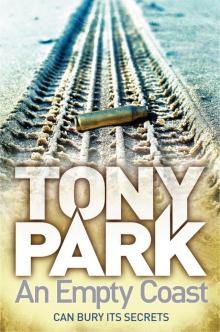 An Empty Coast
An Empty Coast Dark Heart
Dark Heart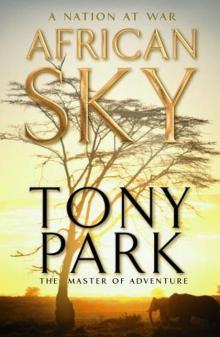 African Sky
African Sky The Delta
The Delta Captive
Captive Ivory
Ivory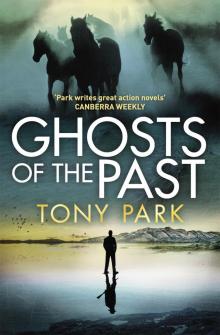 Ghosts of the Past
Ghosts of the Past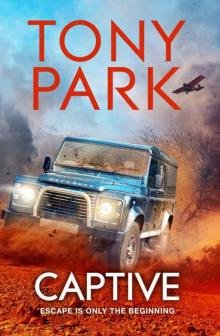 Captive_A High-octane And Gripping African Thriller
Captive_A High-octane And Gripping African Thriller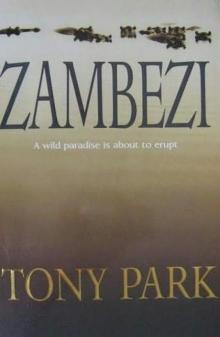 Zambezi
Zambezi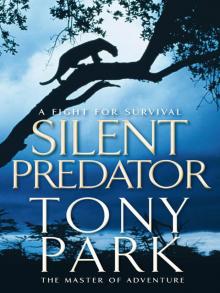 Silent Predator
Silent Predator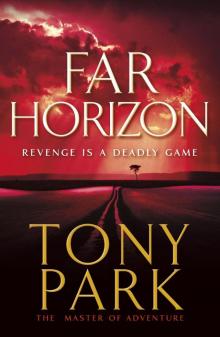 Far Horizon
Far Horizon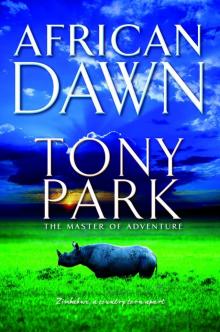 African Dawn
African Dawn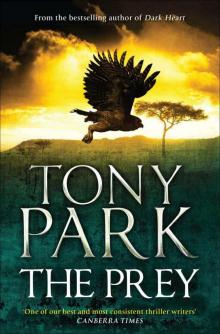 The Prey
The Prey Safari
Safari